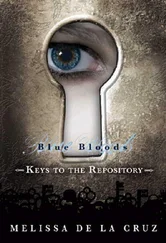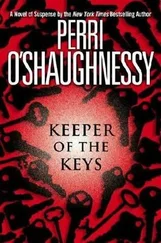“The boys,” he smiled grimly, “welcoming me home.”
Then the train came to a stop, and Mr. Magee looked down into a great array of faces, and heard for the first time the low unceasing rumble of an angry mob. Afterward he marveled at that constant guttural roar, how it went on and on, humming like a tune, never stopping, disconnected quite from the occasional shrill or heavy voices that rang out in distinguishable words. The mayor looked coolly down into those upturned faces, he listened a moment to the rumble of a thousand throats, then he took off his derby with satiric politeness.
“Glad to see one and all!” he cried.
And now above the mutterings angry words could be heard, “That’s him,” “That’s two-hundred-thousand-dollar Cargan,” “How’s the weather on Baldpate?” and other sarcastic flings. Then a fashion of derisive cat-calls came and went. After which, here and there, voices spoke of ropes, of tar and feathers. And still the mayor smiled as one for whom the orchard gate swung open in May.
A squad of policemen, who had entered the car from the rear, forced their way put on to the platform.
“Want us to see you through the crowd, Mr. Cargan?” the lieutenant asked.
New hoots and cries ascended to the station rafters. “Who pays the police?” “We do.” “Who owns ’em?” “Cargan.” Thus question and answer were bandied back and forth. Again a voice demanded in strident tones the ignominious tar and feathers.
Jim Cargan had not risen from the slums to be master of his town without a keen sense of the theatric. He ordered the police back into the car. “And stay there,” he demanded. The lieutenant demurred. One look from the mayor sent him scurrying. Mr. Cargan took from his pocket a big cigar, and calmly lighted it.
“Some of them guys out there,” he remarked to Magee, “belong to the Sunday-school crowd. Pretty actions for them — pillars of the church howling like beasts.”
And still, like that of beasts, the mutter of the mob went on, now in an undertone, now louder, and still that voice that first had plead for tar and feathers plead still — for feathers and tar. And here a group preferred the rope.
And toward them, with the bland smile of a child on his great face, his cigar tilted at one angle, his derby at another, the mayor of Reuton walked unflinchingly.
The roar became mad, defiant. But Cargan stepped forward boldly. Now he reached the leaders of the mob. He pushed his way in among them, smiling but determined. They closed in on him. A little man got firmly in his path. He took the little man by the shoulders and stood him aside with some friendly word. And now he was past ten rows or more of them on his way through, and the crowd began to scurry away. They scampered like ants, clawing at one another’s backs to make a path.
And so finally, between two rows of them, the mayor of Reuton went his way triumphantly. Somewhere, on the edge of the crowd, an admiring voice spoke. “Hello, Jim!” The mayor waved his hand. The rumble of their voices ceased at last. Jim Cargan was still master of the city.
“Say what you will,” remarked Mr. Magee to the professor as they stood together on the platform of the car, “there goes a man.”
He did not wait to hear the professor’s answer. For he saw the girl of the Upper Asquewan station, standing on a baggage truck far to the left of the mob, wave to him over their heads. Eagerly he fought his way to her side. It was a hard fight, the crowd would not part for him as it had parted for the man who owned the city.
Chapter XXII
The Usual Thing
“Hello, Mr. Hold-up Man!” The girl seized Mr. Magee’s proffered hand and leaped down from the truck to his side.
“Bless the gods of the mountain,” said Magee; “they have given me back my accomplice, safe and sound.”
“They were black lonesome gods,” she replied, “and they kept whispering fearful things in my ear I couldn’t understand. I’m glad they didn’t keep me.”
“So am I.” The crowd surged about them; many in it smiled and spoke admiringly to the girl. “It’s great to be acquainted with the heroine of the hour,” Mr. Magee continued. “I congratulate you. You have overthrown an empire of graft, it seems.”
“Alone and unaided,” she quoted, smiling mockingly up into his face.
“Absolutely alone and entirely unaided,” said Billy Magee. “I’ll swear to that in court.”
Mrs. Norton panted up to them.
“Hello, dearie!” she cried. “Thank heaven you’re safe. Have you been up to the house? How’s Sadie getting along? I just know everything is topsyturvy.”
“Not at all,” replied Miss Rhodes. “Breakfast passed off like clockwork at seven, and even Mr. Golden had no complaints to offer. Dear, I must thank you for all you’ve done for me. It was splendid—”
“Not now,” objected Mrs. Norton. “I got to get up to the house now. What with Christmas only two days away, and a lot of shopping to be done, I can’t linger in this drafty station for thanks. I want you to bring Mr. Magee right up to the house for lunch. I’ll have a meal ready that’ll show him what suffering must have been going on inside me while I sat still watching that hermit man burlesquing the cook business.”
“Delighted,” said Magee. “I’ll find you a cab.” He led the way to a row of such vehicles, Mrs. Norton and the girl following.
“Seems like you’re always putting me in a cab,” remarked the older woman as she climbed inside. “I don’t know what Mary and me would have done if it hadn’t been for you. You’re a mighty handy person to have around, Mr. Magee. Ain’t he, dearie?” She winked openly at Magee.
“And a delightful one,” agreed the girl, in a matter-of-fact tone.
Mrs. Norton was driven away up the snowy street. As Mr. Magee and the girl turned, they beheld the Hermit of Baldpate staring with undisguised exultation at the tall buildings of Reuton.
“Why, it’s Mr. Peters!” the girl cried.
“Yes,” replied Magee. “His prediction has come true. We and our excitement proved too much for him. He’s going back to Brooklyn and to her.”
“I’m so glad,” she cried. She stretched out her hand to the hermit. He took it, somewhat embarrassed.
“Glad to see you,” he said. “You certainly appear to have stirred things up, miss. But women are good at that. I’ve always said—”
“Mr. Magee tells me you’re going back, after all?” she broke in.
“Yes,” returned Peters. “I knew it. I told you so. It was all right in the summer, when the bands played, and the warm wind was hermiting on the mountain, too. But in the fall, it’s always been hard, and I’ve heard the white lights calling, calling — why, I’ve even heard her — heard Ellen. This fall you came, and there was something doing on Baldpate — and I knew that when you went, I’d just naturally have to go, too. So — I’m going.”
“Splendid,” commented the girl.
“It’ll be somewhat delicate,” continued the hermit, “bursting in on Ellen after all these years. As I told Mr. Magee, I wish I had an inaugural address, or something like that.”
“I have it,” responded Evelyn Rhodes. “I’ll write a story about you for to-morrow morning’s paper. All about how the Christmas spirit has overcome the Hermit of Baldpate, and how he’s going back to his wife, with his heart filled with love for her — it is filled, isn’t it?”
“Well, yes,” agreed Mr. Peters. “I reckon you might call it that.”
“And then you can send her a copy of the paper, and follow it up in person.”
“A good idea,” commented Billy Magee.
“At first glance, yes,” studied Peters. “But, on the other hand, it would be the death knell of my post-card business, and I’m calculating to go back to Baldpate next summer and take it up again. No, I’m afraid I can’t let it be generally known that I’ve quit living in a shack on the mountain for love of somebody or other.”
Читать дальше












